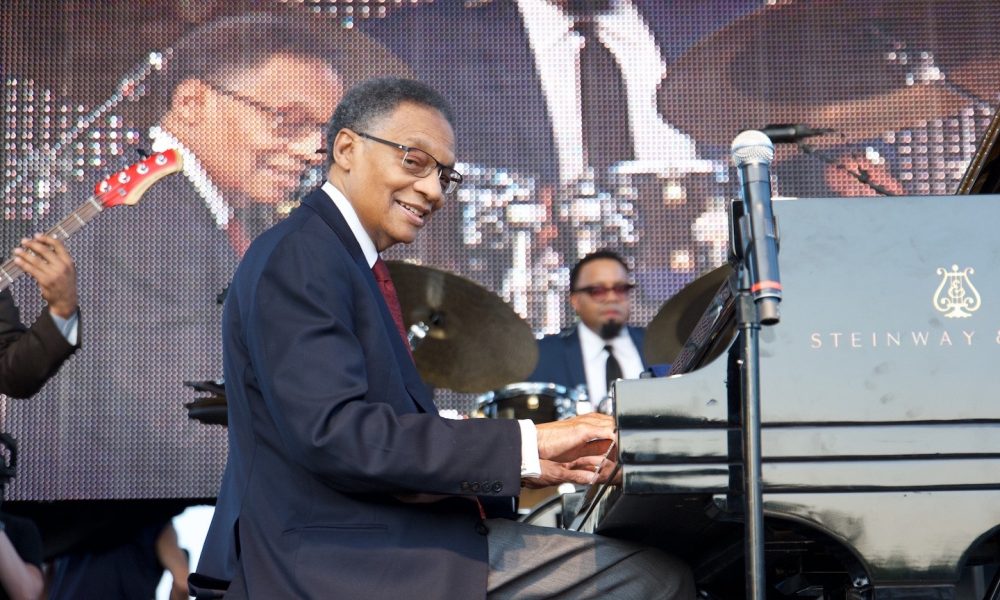Jazz Pianist And Chicago Icon Ramsey Lewis Dies At 87
Lewis won three GRAMMY Awards and recorded over 80 albums.

Chicago jazz legend Ramsey Lewis has died at the age of 87. According to his Facebook page, he died peacefully at his home in Chicago Monday morning (September 12).
“Ramsey’s passion for music was truly fueled by the love and dedication of his fans across the globe. He loved touring and meeting music lovers from so many cultures and walks of life. It was our family’s great pleasure to share Ramsey in this special way with all those who admired his God-given talents. We are forever grateful for your support,” Jan Lewis said.
Lewis was born in Chicago in 1935 and grew up in Cabrini Green. Lewis won three GRAMMY Awards and recorded over 80 albums.
“I actually owe my beginning to a guy named Daddy O’Daly, who was a big jazz DJ in Chicago at that time,” Lewis explained about his emergence in the industry. “He had heard our little show at a dive in Chicago and it was he who got us a contract with Leonard Chess. At that time, we called ourselves Ramsey Lewis and the Gentlemen of Jazz. But it was Daddy who taught us the do’s and don’ts of the business and to him I owe my greatest debt.” The quote was recorded by John Abbey in Blues & Soul on November 25, 1975.
In that same issue, Abbey writes, “Ramsey Lewis spent a decade and a half with Chess and it was with the family owned company that he became perhaps the most successful jazz artist of the 60s. Today, people talk about the discos but few realize how big and prominent apart was played by Ramsey–back in the 60s and long before the disco fad became fashionable.” Lewis was first celebrated in 1965 thanks to a jazz instrumental version of “The In Crowd,” which became a hit a few months earlier with Dobie Gray.
“At the time, I felt there was nothing wrong with incorporating Black church music with straight pop,” Lewis explained to Abbey. “The jazz purists put me down–naturally! But who is to say what’s good and what’s bad. They all said that I couldn’t take Rock and give it a jazz feel. But I just kept on and followed my creative instinct and it paid off with ‘In Crowd,’ then ‘Hang On Sloopy,’ ‘Hard Day’s Night,’ and ‘Wade In The Water,’ which was the biggest of all.”
Those tracks–“The In Crowd,” “Hang On Sloopy,” and “Hard Day’s Night”–were massive successes. Each sold over one million copies and earned Gold status with the RIAA. These songs proved that Ramsey had a unique ability to translate jazz ideas to an audience that didn’t typically listen to the genre.
Another of his most celebrated albums was the Dancing In The Street live album. On the project, he led the Ramsey Lewis Trio and the group recorded an excellent and intimate live album named after the Motown classic. Lewis’ stylish reimagining of Martha and the Vandellas’ “Dancing In The Street” preceded the LP as a single and entered the Billboard Hot 100 on September 23, 1967.
In The Faber Companion to 20th-Century Popular Music, 2001, Phil Hardy and Dave Laing write, “Lewis re-formed his trio with bass-player Cleveland Eaton and drummer Maurice White, who also played kalimba (African thumb piano). He left Lewis in 1969 to form Earth, Wind and Fire. Lewis continued to record prolifically, for Cadet until 1972 and thereafter for Columbia. Funky Serenity (1973) continued the policy of covering current hits, and Booker T. and the MGs guitarist Steve Cropper played on Solar Wind (1974). The most successful of the later albums was Sun Goddess (1975), produced by White.
“After 1976 Lewis expanded the trio format to include flute and clarinet. He explored classical styles on Legacy (1979), and recorded with singer Nancy Wilson on The Two of Us (1984). In the 90s Lewis moved to the GRP label, recording Sky Island (1993) with his sons Frayne and Robert. He also hosted jazz radio and television shows.”
“My theory was always this—how can I say what I want to say and get people to listen, too. That’s how those disco hits came in the mid-60s–just by asking that same question,” explained Ramsey during his interview with Abbey. “But too many musicians started to forget that their audience didn’t consist of musicians and that the public just wants to be entertained. An audience is made up of secretaries or truck drivers so what do they know about complicated musical licks. And, even more important, they don’t want to know! They just want to feel their music.”












